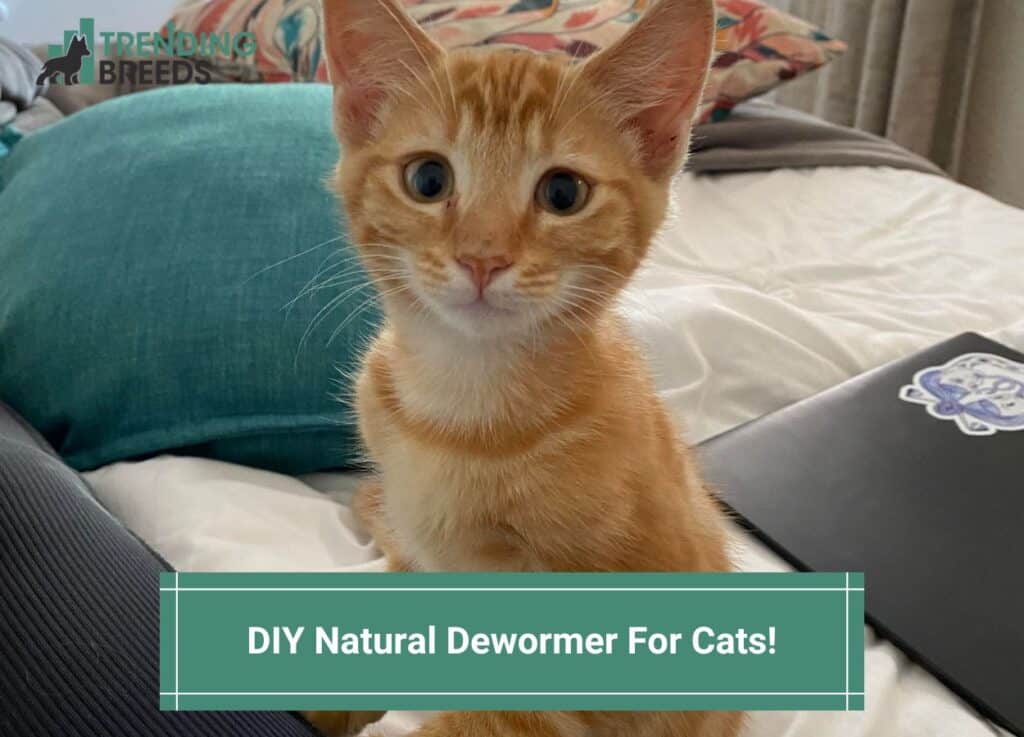
Cats get worms often, and it’s not often possible for cat owners to take them to the vet every single time.
If you fall under that category of owners, then there is no need to worry! There are a wide range of natural dewormers you can choose from.
Some natural dewormers for cats include pumpkin seeds, chamomile, turmeric, apple cider vinegar, coconut, carrots, and ginger.
There are also homeopathic and herbal dewormers available on the market.
Read below for a complete list of natural deworming options for your cats.
Before you scroll further down this guide, check out these other cat-related articles: How to Euthanize a Cat? and What is the Cost to Euthanize a Cat?.
[ez-toc]What is a Dewormer?

A dewormer is a medication that, when given orally to a cat, eliminates the parasites in the cat’s digestive system.
These medicines are also known as anthelmintics, which refers to any medication that kills or removes worms from the body of a person or an animal.
Deworming medications for cats can work in a variety of ways, and the one that is most effective for your pet will depend on the intestinal parasite that they have.
If your cat has a tapeworm infection, the medication will treat the infection by eradicating the tapeworm eggs in the intestinal tract.
Once the eggs have been destroyed, the tapeworms will no longer be able to reproduce.
For cats infected with roundworms, the medicine acts as a paralytic, causing the worms to release their grip on the intestinal lining and exit the body through the cat’s feces.
Different parasites require different dewormers, but they all work toward the same goal: ridding your feline buddy of those bothersome worms.
Types of Intestinal Parasites in Cats
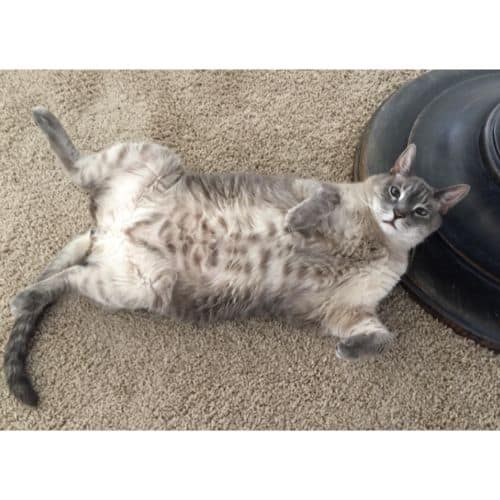
When people talk about the parasites that live in cats’ intestines, they could be referring to any of the many types of parasites.
Some of the most frequent parasites found in cats are:
Tapeworms
Tapeworms are a type of intestinal parasite that your cat can contract if it has fleas or if it ingests a flea that is a carrier for tapeworms.
This is only one of the many reasons why flea control is essential.
Roundworms
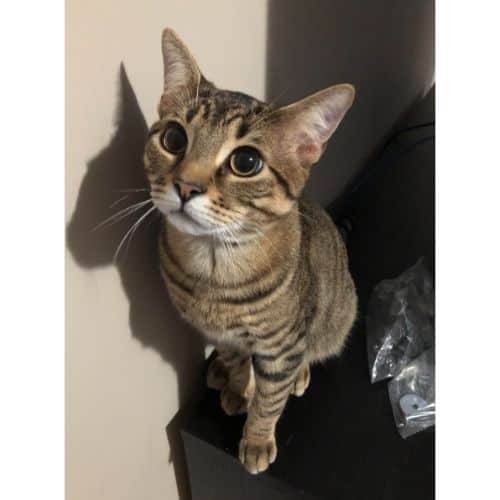
Cats frequently contract roundworms during breastfeeding, making this parasite a serious and widespread health problem.
It is common for kittens to contract the infection by nursing from an infected mother or by coming into close contact with feces that contain the infection.
Coccidia
Unlike the other parasites on this list, coccidia are not worms but protozoans living in the intestinal lining.
They are not parasites, but they can cause just as much trouble for your cat.
Coccidia can cause severe diarrhea in cats and kittens, making it a serious health risk for your pet.
Hookworms
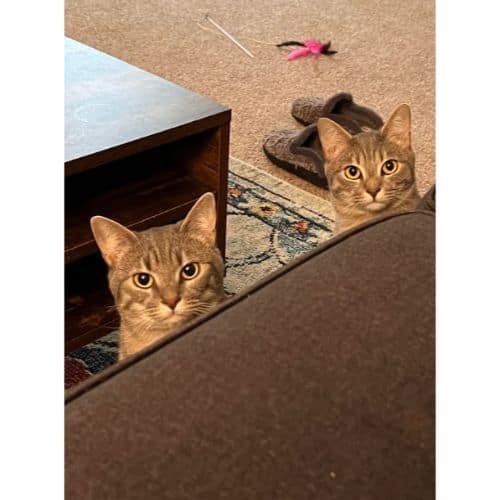
Hookworms are yet another type of intestinal parasite that frequently affects cats.
They can bring with them a life-threatening form of anemia because they feed on blood in the intestinal lining of our animal friends.
Hookworms are almost always the cause of anemia in kittens and adult cats.
Whipworms
Although whipworms are not as widespread as the other parasites on our list, they are nonetheless capable of causing your feline companion a great deal of misery.
Whipworms are notoriously destructive parasites that love to make their home in your cat’s gut.
Despite its relative rarity, this worm has earned a reputation as one of the most dangerous of its kind.
Giardia
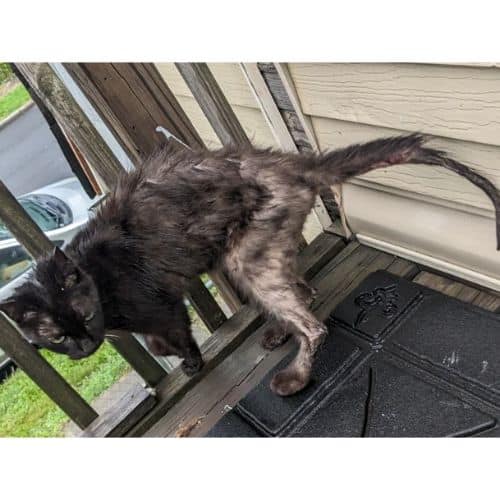
Giardia is another protozoan that may result in severe diarrhea in our feline pets. Giardia can be transmitted from cats to humans.
Giardia can be contracted by ingesting polluted water or soil, and it is frequently found in settings such as animal shelters and locations with dense concentrations of cat populations.
DIY Natural Dewormer for Cats
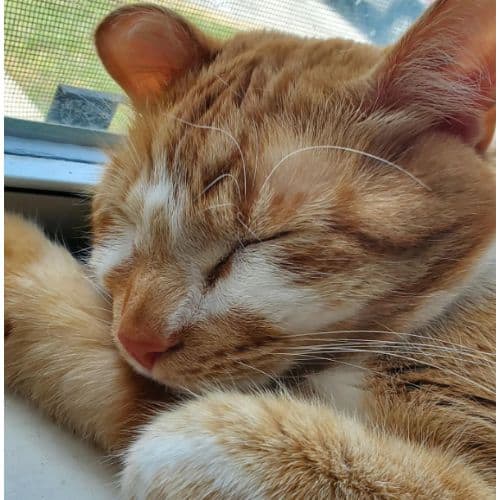
There are many natural dewormers available that you can easily use to deworm your cats. Some of these are discussed below in this section.
1. Pumpkin Seeds
The amino acid cucurbitacin in pumpkin seeds makes them an effective deworming agent.
The worms are rendered immobile before being extracted from the intestine.
You may either offer them to your cat in their whole form as a treat, or you can grind them up into a powder and mix them with their diet.
One teaspoon of raw pumpkin seeds per 10 pounds of body weight, twice a day, will effectively deworm your cat without using chemicals.
Animals enjoy eating pumpkin seeds, and there is evidence that doing so consistently can help to paralyze and remove worms from the digestive tract.
Once released, these intruders will never return. We need to keep getting rid of those horrible parasites and avoiding reinfestation at the same time.
Cucurbitacin paralyzes leeching worms, causing the worms to release their grip on the intestinal walls of either you or your pet.
When they finally let go of their grip, your cat won’t need to do anything more than poop them out; they’ll go away on their own. The seeds are palatable and can be chewed.
2. Chamomile

Chamomile can both prevent and treat worm infections caused by roundworms and whipworms.
It is common practice to treat digestive difficulties in pets using chamomile tea, which is also believed to soothe the entire digestive tract.
It is traditionally administered to infants in Europe via bottle feeding to alleviate colic symptoms and facilitate the development of proper nursing habits.
And like many other types of herbs, chamomile can combat parasitic infections.
Research shows that chamomile can effectively treat both whipworms and roundworms.
A tincture is the most effective form of administration; consult your vet about the proper dosage for your cat.
To prepare it, you only need one teaspoon of tea, and almost anyone knows how to prepare that.
However, professionals recommend blending at least a quarter cup of water with a quarter teaspoon of the herb.
Put a quarter cup of water in a pot or another suitable container, then bring it to a boil using a stove or some other heat source until it reaches the desired temperature.
Remove the skillet from the heat. Cover it for two minutes after adding a quarter teaspoon of the herb.
It is recommended to feed one teaspoon for every 10 pounds of body weight.
Tea can be added to the formula given to newborn kittens twice daily at a safe level equal to one-third of a teaspoon.
3. Turmeric
Turmeric is an aromatic spice that has been used for a long time and is associated with several health benefits.
Due to its various therapeutic effects, turmeric has been utilized in traditional Ayurvedic medicine and traditional Chinese medicine for thousands of years.
This spice is nothing short of a miracle.
The roots and bulbs of the plant contain the active substance curcumin.
It has strong healing, anti-cancer, anti-inflammatory, antibacterial, antiviral, antifungal, anticoagulant, and antiseptic properties.
But when it comes to our domesticated animals, they are susceptible to the same diseases that we are.
Therefore, turmeric is a great natural herb that can help improve the general health and vitality of our most beloved feline companions.
You can improve your cat’s digestive health with turmeric, a superfood with anti-inflammatory qualities.
In addition, it contains components that can aid in the extermination of worms and the repair of damage to the intestinal lining.
Because turmeric is undeniably risk-free for cats to consume and offers therapeutic benefits, it is frequently used as a treatment for various conditions that affect cats.
Their immune system can function at a higher level, which is beneficial in the fight against a variety of diseases.
4. Apple Cider Vinegar
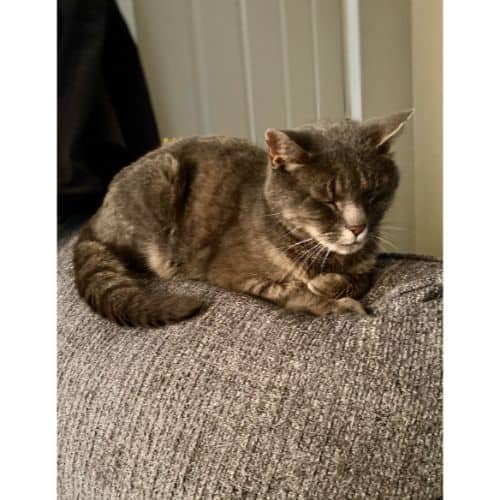
Apple cider vinegar has been lauded for its possible health benefits.
Many people believe treating worm infestations in cats with apple cider vinegar is an excellent way to cure the condition.
It’s effective because, unlike regular vinegar, it raises the pH of the cat’s digestive tract, making it less welcoming to parasites and worms.
You can improve your cat’s overall health and the quality of its coat by adding a small amount (quarter to one teaspoon) of raw organic apple cider vinegar to its water daily.
5. Coconut
Dried coconut might help you eliminate worms in your cat since it acts as a vermifuge.
Coconut oil has numerous beneficial properties, including relieving cats of parasites.
To use it as a dewormer, sprinkle the recommended amount onto your cat’s food once per day: one teaspoon for small cats, two teaspoons for medium cats, and one tablespoon for large breeds.
Coconut oil contains lauric acid, which, when metabolized by the body, becomes monolaurin, a compound that research has shown to be beneficial against various parasites, including tapeworms, giardia, and others.
Your cat’s daily dose of coconut oil should rise by roughly one teaspoon for every 10 pounds it weighs.
6. Carrots

These popular orange veggies are loaded with vitamin A, one of the most commonly used cures for worms in cats.
Roughly sliced carrots, when eaten, can remove parasites and mucus by scratching the stomach and intestinal walls.
Carrots are an excellent source of nutrition for your cats, so feel free to give them some as a delightful treat or incorporate them into their regular cat food diet.
They’re risk-free while being an excellent source of vitamins and minerals that boost immunity. Carrots are a great tool in the fight against worms in our feline buddies.
7. Ginger
Ginger, fresh and minced, added to your cat’s diet can also be used as a home remedy for deworming. It would help if you only gave ginger to your cats once a day.
Ginger has many uses, including as a preventive and a pesticide for common insects and parasites. Start with very small doses of ginger so you don’t put your cat off.
Homeopathic Dewormer for Cats

Cats can choose from several different homeopathic dewormers, such as:
- Verm-X is a blend of herbs that effectively removes worms and other parasites from the intestinal tract. You can get it in pill or liquid form.
- Worm Out is a homeopathic medication designed to treat and prevent worm infestations in cats.
- Bio-X Worm is a homeopathic treatment designed to aid in the expulsion of worms and other parasites from the gastrointestinal tract.
- HomeoPet WRM Clear is an effective homeopathic treatment for worms and other parasites in the digestive system of your pet.
Before feeding your cat homeopathic medications, you should talk to your vet or an expert homeopathic specialist.
Herbal Dewormers for Cats

Several natural wormers for felines are currently on the market.
- Fenbendazole is a herb that is frequently utilized in the treatment of worms in cats. It kills the worms by interfering with their metabolism and, thus, their ability to take in food.
- Black walnut is a type of plant that has a long history of use in the treatment of worms in cats. It is rich in a substance known as juglone, which is an antiparasitic agent.
- Goldenseal is a herb often used to treat worms in feline patients. It has antiparasitic qualities thanks to a component called berberine.
- Wormwood is a herb used for centuries to treat worms in feline patients successfully. It has been demonstrated to have antiparasitic qualities due to a chemical called thujone.
You should talk to your vet or an experienced herbalist before giving your cat any herbs.
DIY Natural Dewormer For Cats

In conclusion, there is a wide variety of natural dewormers easily available on the market.
But if you find these dewormers ineffective, you may need to contact your vet for a full evaluation and treatment for intestinal worms.
If you find this guide, “DIY Natural Dewormer For Cats,” informative and helpful, you can check out these other cat-related articles from our team:
Learn more by watching “Deworming Cats Naturally: Prevent Roundworms & Tapeworms in Cats” down below:




